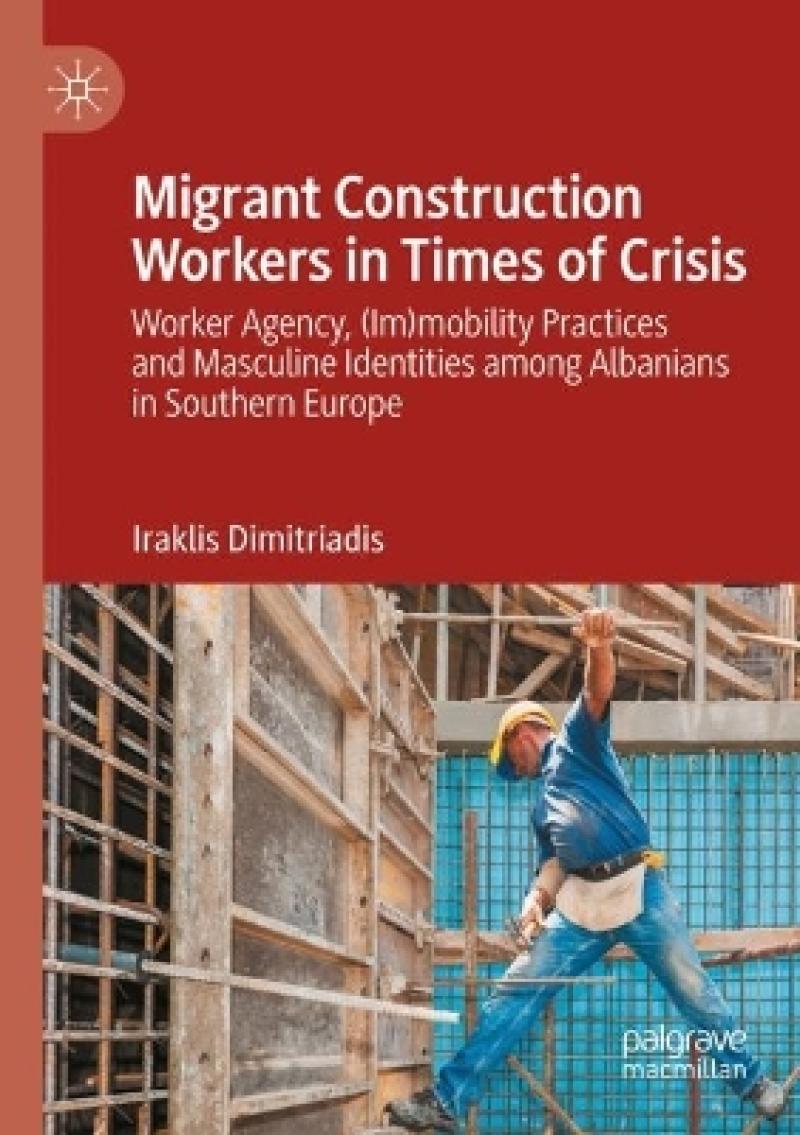This book explores how migrant construction workers in Southern Europe faced unemployment and precarious work conditions during and after the Great Recession. By drawing on rich qualitative data, it investigates the experiences of Albanian men within and beyond the workplace, and sheds light on the capacity of migrant builders to deal with economic hardships and the role of their families and masculine identities in shaping their coping practices. This book suggests a new framework for the study of coping practices among migrant (construction) workers, and adds to the study of integration processes in Southern European countries by comparing the narratives of settled migrants in Italy and Greece. This book also looks at the effects of the COVID-19 pandemic on migrant builders’ lives in Southern Europe. By adopting an interdisciplinary approach, this book is of interest both to students and researchers in the field of migration studies and those working in the fields of sociology, geography, anthropology, political science and economics.
Les mer
This book explores how migrant construction workers in Southern Europe faced unemployment and precarious work conditions during and after the Great Recession.
Chapter 1: IntroductionChapter 2: Contexts, Methods and Analytical FrameworkChapter 3: Migrant Construction Workers’ Agency in Times of Economic RecessionChapter 4: (Im)mobility and Coping Practices among Albanian Construction Workers and their Families Amidst the Great Recession and its AftermathChapter 5: The effects of the Economic Downturn on Masculine Identities and their Relevance to Migrant Agency and Family RelationsChapter 6: Conclusions
Les mer
“This exciting new book combines several innovative aspects: a sectoral focus on migrant construction workers; the tension between mobility and immobility in times of crisis, both economic crisis and the Covid pandemic; and the gender lens of masculinity in the context of unemployment and constrained agency. Taking as its empirical focus Albanian migrants in Italy and Greece, the result is a study which blends high-quality research with a lively and interesting narrative account.” —Russell King, Professor of Geography, University of Sussex, United Kingdom. This book explores how migrant construction workers in Southern Europe faced unemployment and precarious work conditions during and after the Great Recession. By drawing on rich qualitative data, it investigates the experiences of Albanian men within and beyond the workplace, and sheds light on the capacity of migrant builders to deal with economic hardships and the role of their families and masculine identities in shaping their coping practices. This book suggests a new framework for the study of coping practices among migrant (construction) workers, and adds to the study of integration processes in Southern European countries by comparing the narratives of settled migrants in Italy and Greece. This book also looks at the effects of the COVID-19 pandemic on migrant builders’ lives in Southern Europe. By adopting an interdisciplinary approach, this book is of interest both to students and researchers in the field of migration studies and those working in the fields of sociology, geography, anthropology, political science and economics.Iraklis Dimitriadis is a post-doctoral researcher and adjunct professor of the course “Welfare and Immigration” at the Department of Sociology and Social Research of the University of Milano-Bicocca. He has a PhD in Sociology and Methodology of Social Research from the University of Milan and University of Torino (distinction Doctor Europaeus). He is part of the editorial board of the journals Frontiers in Sociology and Mondi Migranti.
Les mer
“This exciting new book combines several innovative aspects: a sectoral focus on migrant construction workers; the tension between mobility and immobility in times of crisis, both economic crisis and the Covid pandemic; and the gender lens of masculinity in the context of unemployment and constrained agency. Taking as its empirical focus Albanian migrants in Italy and Greece, the result is a study which blends high-quality research with a lively and interesting narrative account.” —Russell King, Professor of Geography, University of Sussex, United Kingdom. “This timely research contributes to our understanding of migrant agency in dealing with crises – the European financial crisis but also more recently the pandemic crisis – looking at how spatial mobility and immobility can be part of migrant strategies for addressing job loss. The book is a great companion to anyone who works on migration in southern Europe but also to those who are mainly interested on migrant agency, while also bringing in new insights to masculinity and family dynamics in migration.” —Prof. Anna Triandafyllidou, Canada Excellence Research Chair in Migration and Integration.“The construction sector, while being so important for the employment of immigrant workers, has been under-researched in the field of migration studies. And the agency of migrants, especially during periods of economic recession, has been equally neglected. This valuable book fills this double gap with an insightful and brilliant research study.”—Maurizio Ambrosini, Full Professor of Sociology of Migrations, Department of Social and Political Sciences, University of Milan.“An empirically solid book that innovatively explores the relationships between working conditions, family dynamics, and intra-European mobility trajectories of migrant workers, employed in a very important yet under-studied segment of the labour market. Iraklis Dimitriadis highlights the complex embroidery of individual agencies within and through structural constraints and barriers.” —Prof. Francesco Della Puppa, Department of Philosophy and Cultural Heritage, Ca’ Foscari University of Venice, Italy.
Les mer
Investigates the capacity of migrant construction workers to get by or improve their lives, even in times of crisisProvides new framework to the study of coping practices of migrant workers employed in so-called low-skilled sectorsAnalyses and compares data from more than 120 interviews and ethnographic material collected in Italy and Greece
Les mer
Produktdetaljer
ISBN
9783031188008
Publisert
2024-01-03
Utgiver
Vendor
Palgrave Macmillan
Vekt
384 gr
Høyde
210 mm
Bredde
148 mm
Aldersnivå
Research, P, 06
Språk
Product language
Engelsk
Format
Product format
Heftet
Forfatter
